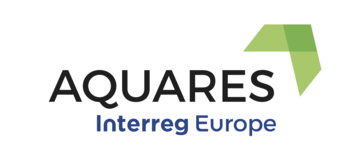Feed from Murcia
"Water regeneration as a model that should be replicated
Access to water resources in the world is the more and more difficult due to the action on climate change that causes the intensification of meteorological extremes. This is why society is becoming the more and more aware of one of our most precious assets and therefore we must minimize the cost of water.
The current income model based on a linear economy and the current circumstances that we are experiencing through violent phenomena of flash flooding, long-term droughts or even the appearance of new viruses, shows that the current model begins to show symptoms of over-depletion and therefore, we must base our economies on sustainability as a fundamental pillar promoting a positive balance for the environment, and therefore, seeking to create value when goods end their useful life, moving to a new circular economy that currently It is driven through the 2030 agenda.
The new models must be based on achieving more with fewer resources, the basic principle of the circular economy, and thereby achieving the end of the current model of extraction, production, use and generation of waste to be reduced, reused and recycled, without forgetting that implicitly the new The model is associated with the optimization and efficiency of the processes and the raw materials.
An example of this is the regeneration and reuse of urban wastewater. An initiative that is currently promoting the European Union and that through the AQUARES project in collaboration with 9 countries, pioneering and innovative actions to be implemented are discussed. The reusing of water is one of the optimal ways to stop climate change since the use of water resources in the world is concentrating by irrigation by 80%, each drop of water that is regenerated from cities reduces the pressure of the Irrigation on the natural resource and that is why we are obliged to regenerate and reuse every daily element in our lives, in order to achieve greater sustainability.
Agriculture is a great sink for CO2 and, therefore, any action aimed at recycling water and putting it back into value in agriculture or in the irrigation of parks and gardens, also prevents desertification in arid areas.
The regeneration of waters is a milestone that was ahead of the future, not only in anticipation of climate change through the release of exploitation of resources, incorporating a high percentage of recycled matter into the processes, but also incorporating systems of elimination of viruses and contaminants that is so important these days.
To give sanitary guarantees to the regenerated waters in Murcia, MBR (Biological Membrane Reactors) membrane systems were adapted which, compared to conventional systems, have the capacity to eliminate bacteria and viruses from wastewater, in addition to their main functions of biological elimination of the organic matter and physical separation of the solid and liquid phases. That is why the M.B.R. They are presented as a compact and complete treatment to provide high quality treated water suitable for reuse.
In addition, treatments such as disinfection with ultraviolet light guarantee the elimination of viruses in a very small percentage, systems that by the way, are now used as they are more agile for the disinfection of Covi-19 (Coronavirus) by many authorities on the planet.
Water is essential to guarantee the life and the supply of fruits and vegetables at present of confinement in our country, so the use of recycled water by this sector is also essential and strategic in deficit regions like ours. Thanks to the more than 100 cubic hectometers that our farmers receive, they are able to supply vegetables to much of Europe. Within the fragility of which we are currently aware by the action of a virus, we see how systems planned at the beginning of the year 2000, now not only anticipate the elimination, to give the greatest sanitary guarantees to our regenerated waters, but also, manage to guarantee the supply of excellent quality food to the population.
Today, more than ever we are called and sensitized to turn our habits around, showing a greater interest in the environment, optimizing our actions, being more efficient, recycling inputs and incorporating them, in order to have less impact, but above all, we must learn that the footprint we leave today will be part of the future of other generations.
"Miguel Angel del Amor, Agricultural Engineer"


